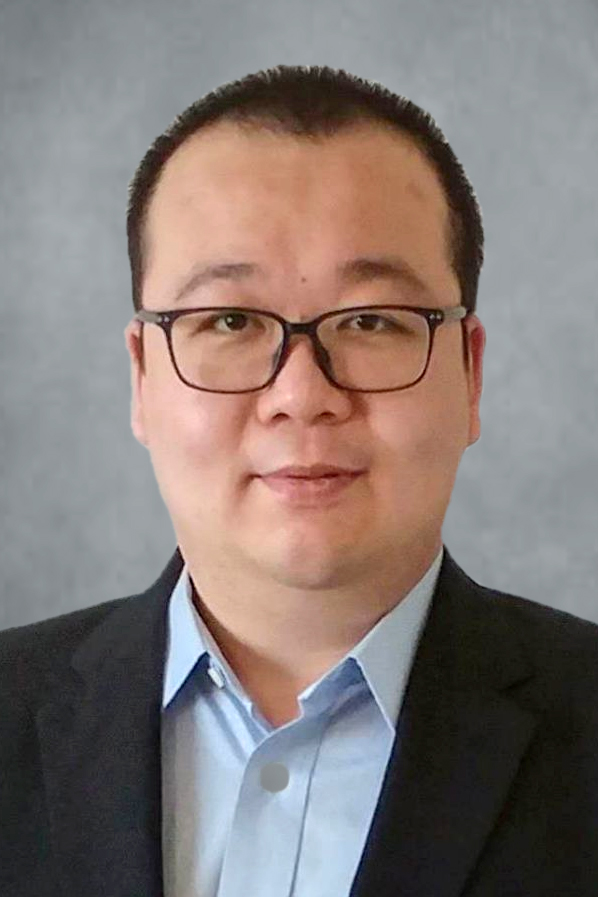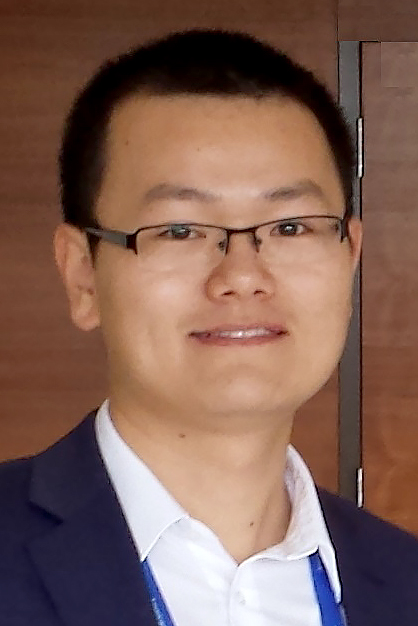The College of Polymer Science and Polymer Engineering (CPSPE) at The University of Akron (UA) is pleased to announce the hiring of four new faculty members in the areas of polymer chemistry, characterization, computational modeling, and advanced manufacturing.
These hires demonstrate UA’s commitment, support, and investment in polymer research, and the new positions will augment CPSPE’s existing strengths as well as develop research in new emerging areas in polymer science and polymer engineering.
Dr. James Eagan

Dr. James Eagan
Dr. James Eagan (Assistant Professor, Polymer Science) graduated from Emory University in 2009 with a B.S. in Chemistry summa cum laude and received a Ph.D. in Chemistry from Columbia University in 2014.
Following his doctoral studies, he studied the synthesis and properties of polyolefin block copolymers under the guidance of Professor Geoffrey W. Coates at Cornell University,. This research focused on combining the two most abundant plastics, polyethylene and polypropylene, into mechanically tough blends through the use of novel multiblock copolymers.
He worked for Aramco Performance Materials as a lab scientist between 2017 and 2019 and is the cofounder of Exsponge Inc., director of chemistry for Ascribe Bioscience, and recipient of the 2017 Newcomb Cleveland Prize.
Research in the Eagan lab is focused on how plastics can pragmatically address the needs of today, without compromising the future. Plastics are essential to modern life. However, the pervasive use and careless disposal of these materials has resulted in economic wastefulness and created an environmental catastrophe. Utilizing the tools of chemistry and catalysis, the lab synthesizes new polymeric materials for sustainable applications. These polymers provide tools for understanding polymer behavior and technologies for improving recycling, polymer degradation, and enhancing polymer performance.
“Akron has a rich tradition in the world of polymers, much of its renown built on research into rubbery materials. Rubbers, in addition to many other plastics, are difficult to recycle back into valuable materials cost-effectively. My goal is to contribute to Akron’s next chapter as a leader in sustainable plastics through education, research, and collaboration.”
Dr. Fardin Khabaz

Dr. Fardin Khabaz
Dr. Fardin Khabaz (Assistant Professor, Polymer Engineering and Chemical & Biomolecular Engineering) is a postdoctoral fellow at the McKetta Department of Chemical Engineering, The University of Texas (UT) at Austin. He earned his Ph.D. degree in Chemical Engineering from Texas Tech University at Lubbock (2016) and has a BS degree in Chemical Engineering from Sharif University of Technology, Tehran (2011).
Dr. Khabaz uses his expertise in molecular- and particle-dynamic simulations to understand and design properties of various complex fluids. During his graduate studies, he employed atomistically-detailed and coarse-grained molecular dynamics simulations to model and characterize thermal, structural, and rheological properties of polymeric nanocomposites, gels, and polymer modified bitumen. Dr. Khabaz used particle simulations and finite element methods to understand the rheological and mechanical properties of different materials ranging from dilute to jammed suspensions and solid networks during his postdoctoral studies. Dr. Khabaz will join the Department of Polymer Engineering and Department of Chemical and Biomolecular Engineering as an assistant professor starting in January 2020.
His research interests include thermodynamics and dynamics of confined polymer solutions and melts, mechanical properties of dynamic polymer networks, and rheology of concentrated suspensions.
“One of the main factors that led me to choose The University of Akron is the chance, which I was given to be involved in both Departments of Chemical Engineering and Polymer Engineering where I have an excellent opportunity to conduct interdisciplinary research on various topics that have immediate and significant impacts on society.”
Dr. Chunming Liu

Dr. Chunming Liu
Dr. Chunming Liu (Assistant Professor, Polymer Science & Chemistry) is a physical and analytical chemist with his primary research interest in studying polymerization reactions and polymer properties at single-molecule level. Before joining the University of Akron, Dr. Liu worked as postdoctoral and research associate with Prof. Peng Chen at Cornell University, where he achieved the first real-time visualization of single polymer chain growth in ring-opening metathesis polymerization (ROMP) and built expertise on magnetic tweezers and single-molecule fluorescence microscopy. Dr. Liu obtained his PhD in analytical chemistry with Prof. Paul S. Cremer at Texas A&M University, specialized on the development of membrane protein separation method and biosensors on supported lipid bilayers.
The polydispersity of molecular weight and structure exists ubiquitously in synthetic polymers, and it influences both the processing and the performance of polymer materials. Fundamentally, the polydispersity is generated by the heterogeneity of polymerization kinetics among individual polymer chains during polymer synthesis. To understand why and how the heterogeneity is generated, it is necessary to monitor the behavior of individual polymer chains during the polymerization process.
Dr. Liu will use magnetic tweezers and single-molecule fluorescence microscopy to investigate polymerization reactions at single-molecule level, aiming to decipher the origin of the heterogeneity in polymerization kinetics and provide new insights on the controlling of polymer structure and the polydispersity. Besides, Dr. Liu will also study the physical properties of single polymer chains and the inter-chain interactions using single-molecule techniques, aiming to establish the structure-property relationship of polymers on the molecular level.
“I decided to start my independent career at The University of Akron because of Akron’s great reputation and strength in polymer research. I believe my research will dramatically benefit from the excellent research environment in the college, where I can connect and work with all kinds of experts in polymer related fields. On the other hand, my expertise in single-molecule techniques can complement and contribute to the current strength of the college in the polymer characterization field, and I can foresee many collaboration opportunities in the future. At Akron, I aim to push the border of the understanding of polymer chemistry and polymer physics by single-molecule measurements and develop new analytical tools and methods for polymer and material research.”
Dr. Weinan Xu

Dr. Weinan Xu
Dr. Weinan Xu (Assistant Professor, Polymer Engineering) who is a postdoctoral fellow in the Department of Chemical and Biomolecular Engineering at Johns Hopkins University (2016-2019), received his PhD degree in Materials Science and Engineering from Georgia Institute of Technology (2015), and his B.S. degree in Polymer Science and Engineering from Donghua University, China (2011).
He has published 20 papers in high impact journals such as Science Advances, Nano Letters, ACS Nano, and Angewandte Chemie, and was recognized with several awards including Excellence in Graduate Polymer Research Award from the American Chemical Society, Best PhD Thesis Award from Sigma Xi and Georgia Tech, and Postdoctoral Fellow Research & Education Award from Johns Hopkins University.
His current research is focused on the advanced fabrication of ultrathin 3D structures and devices based on functional polymers and 2D materials, for their applications in biosensing, bioelectronics and energy conversion.
“The polymer program at Akron is one of the best in the world. I am really excited about establishing my independent research with the support from colleagues in the college, who are recognized leaders in the polymer community; as well as utilizing the top-notch facilities here for polymer research. I am looking forward to collaborating with the renowned polymer scientists and engineers in the college, mentoring and teaching graduate students, and making my own contributions to the polymer community as a whole.”
